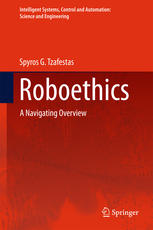

Most ebook files are in PDF format, so you can easily read them using various software such as Foxit Reader or directly on the Google Chrome browser.
Some ebook files are released by publishers in other formats such as .awz, .mobi, .epub, .fb2, etc. You may need to install specific software to read these formats on mobile/PC, such as Calibre.
Please read the tutorial at this link: https://ebookbell.com/faq
We offer FREE conversion to the popular formats you request; however, this may take some time. Therefore, right after payment, please email us, and we will try to provide the service as quickly as possible.
For some exceptional file formats or broken links (if any), please refrain from opening any disputes. Instead, email us first, and we will try to assist within a maximum of 6 hours.
EbookBell Team

4.0
86 reviewsThis volume explores the ethical questions that arise in the development, creation and use of robots that are capable of semiautonomous or autonomous decision making and human-like action. It examines how ethical and moral theories can and must be applied to address the complex and critical issues of the application of these intelligent robots in society.
Coverage first presents fundamental concepts and provides a general overview of ethics, artificial intelligence and robotics. Next, the book studies all principal ethical applications of robots, namely medical, assistive, socialized and war roboethics. It looks at such issues as robotic surgery, children-robot and elderly-robot therapeutical/social interactions and the use of robots, especially autonomous lethal ones, in warfare. In addition, a chapter also considers Japanese roboethics as well as key intercultural and robot legislation issues.
Overall, readers are provided with a thorough investigation into the moral responsibility (if any) of autonomous robots when doing harm. This volume will serve as an ideal educational source in engineering and robotics courses as well as an introductory reference for researchers in the field.